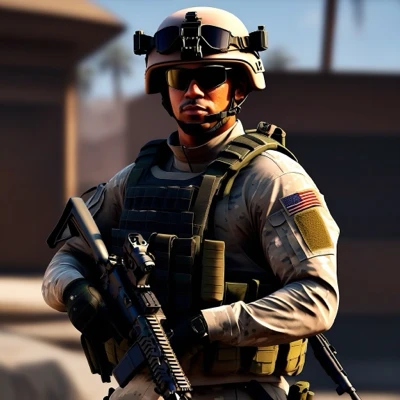Defending Against Article 120 UCMJ Sexual Assault Allegations
Article 120 of the Uniform Code of Military Justice (UCMJ) is one of the most serious charges a service member can face.
It covers sexual assault, rape, aggravated sexual contact, and other related offenses. Convictions under Article 120
can lead to decades of confinement, mandatory sex offender registration, and a dishonorable discharge.
For military members, the stakes could not be higher.
Allegations of sexual assault in the military often involve complex issues such as consent defenses,
forensic evidence (DNA/SANE exams), and digital evidence from phones and social media.
The military justice system has been under enormous political pressure to secure convictions, which often leads to weak or
false allegations being pursued aggressively by prosecutors.
Understanding Article 120 Charges
- Rape and Sexual Assault by Force: Accusations that force, threats, or intimidation were used.
- Sexual Assault of an Incapacitated Person: Allegations involving intoxication or unconsciousness.
- Aggravated Sexual Contact: Unwanted sexual touching with aggravating factors.
- Wrongful Sexual Contact: Allegations of unwanted but non-penetrative contact.
Key Defense Issues in Article 120 Cases
The outcome of an Article 120 case often depends on forensic testing, digital forensics, and witness credibility.
Defense counsel must thoroughly examine whether the government’s evidence proves guilt beyond a reasonable doubt.
- Consent: One of the most common and powerful defenses in Article 120 cases.
- SANE/DNA Evidence: Medical exams often fail to show clear evidence of assault.
- Digital Evidence: Texts, DMs, and social media may show consent, bias, or ulterior motives.
- False Allegations: Motivated by revenge, jealousy, career protection, or relationship issues.
Video: Article 120 UCMJ Sexual Assault Defense
Pro Tips & Common Mistakes
Pro Tips
- Remain silent and request a lawyer before speaking with investigators (CID, NCIS, OSI, CGIS).
- Save all texts, social media posts, and communications with the accuser.
- Hire an experienced civilian defense lawyer to supplement your military attorney.
Common Mistakes
- Believing the truth will “come out” without mounting an aggressive defense.
- Talking to investigators or command without counsel.
- Deleting digital evidence, which can be spun as consciousness of guilt.

Why Choose Gonzalez & Waddington
At Gonzalez & Waddington, we have defended service members in Article 120 cases worldwide,
from high-profile general courts-martial to sensitive administrative actions. We understand the forensic,
digital, and psychological complexities of these cases. Our team has successfully dismantled false allegations
and preserved careers when everything seemed lost. If you or a loved one is accused under Article 120,
call 1-800-921-8607 or visit ucmjdefense.com for a confidential consultation.
Frequently Asked Questions
What is Article 120 of the UCMJ?
Article 120 covers rape, sexual assault, and aggravated sexual contact offenses within the military justice system.
Can consensual sex still lead to Article 120 charges?
Yes. Many cases involve disputes over whether consent was given, often influenced by alcohol, texting, or later regret.
Do I need a civilian lawyer for an Article 120 case?
Yes. Military lawyers are dedicated, but they are overworked and limited in resources. A civilian lawyer provides additional expertise.
What role does DNA/SANE evidence play?
DNA evidence often shows contact, but it rarely proves whether consent was given or not. The defense must challenge the interpretation.
What are the possible punishments under Article 120?
Convictions can result in decades of confinement, mandatory sex offender registration, and a dishonorable discharge.
{
“@context”: “https://schema.org”,
“@type”: “FAQPage”,
“mainEntity”: [
{
“@type”: “Question”,
“name”: “What is Article 120 of the UCMJ?”,
“acceptedAnswer”: {
“@type”: “Answer”,
“text”: “Article 120 covers rape, sexual assault, and aggravated sexual contact offenses within the military justice system.”
}
},
{
“@type”: “Question”,
“name”: “Can consensual sex still lead to Article 120 charges?”,
“acceptedAnswer”: {
“@type”: “Answer”,
“text”: “Yes. Many cases involve disputes over whether consent was given, often influenced by alcohol, texting, or later regret.”
}
},
{
“@type”: “Question”,
“name”: “Do I need a civilian lawyer for an Article 120 case?”,
“acceptedAnswer”: {
“@type”: “Answer”,
“text”: “Yes. Military lawyers are dedicated, but they are overworked and limited in resources. A civilian lawyer provides additional expertise.”
}
},
{
“@type”: “Question”,
“name”: “What role does DNA/SANE evidence play?”,
“acceptedAnswer”: {
“@type”: “Answer”,
“text”: “DNA evidence often shows contact, but it rarely proves whether consent was given or not. The defense must challenge the interpretation.”
}
},
{
“@type”: “Question”,
“name”: “What are the possible punishments under Article 120?”,
“acceptedAnswer”: {
“@type”: “Answer”,
“text”: “Convictions can result in decades of confinement, mandatory sex offender registration, and a dishonorable discharge.”
}
}
]
}
